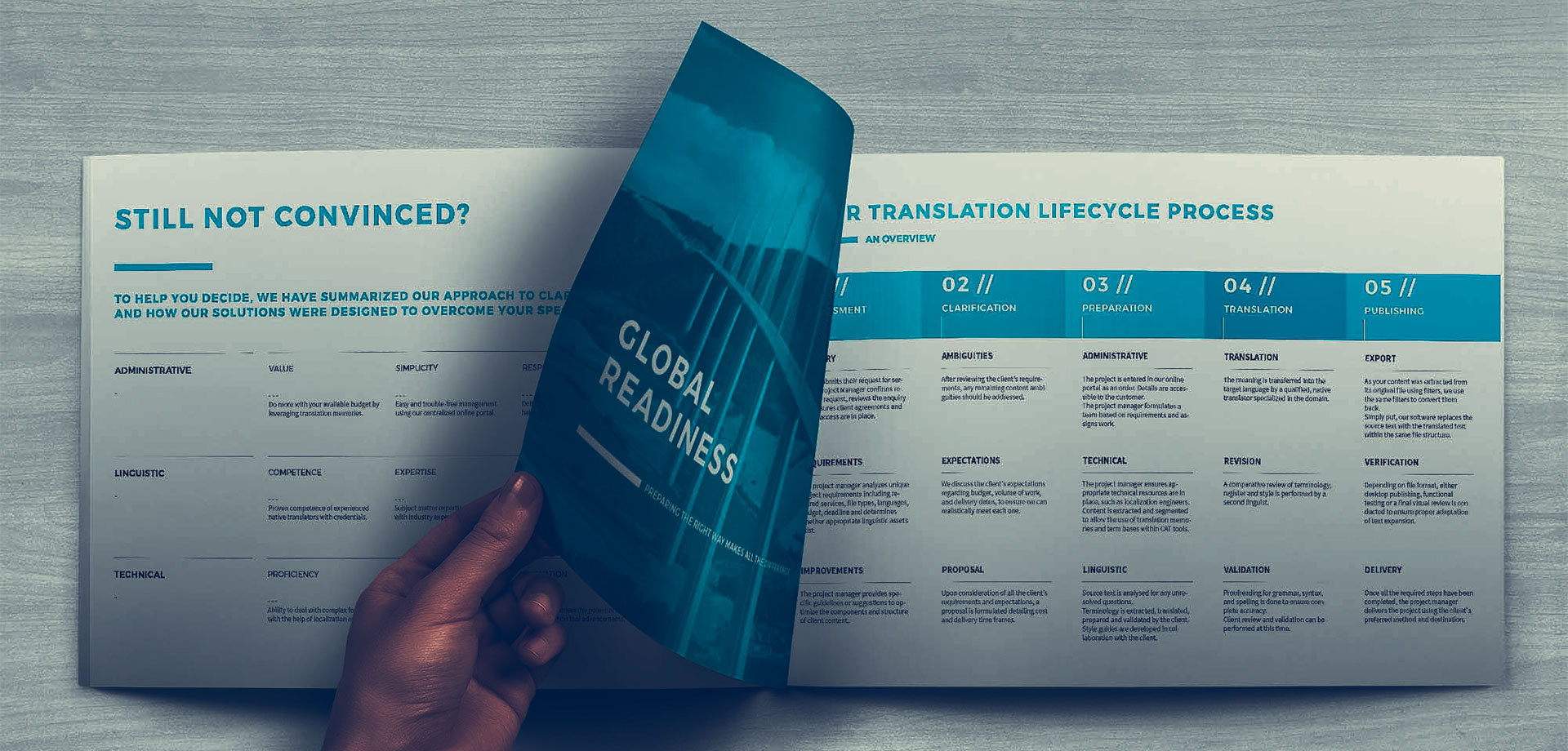Quality Management
Our Process In Depth
We take quality management seriously, as demonstrated by our ISO 17100 certification
Every aspect of our process is rigorously documented and adhered to, ensuring high quality and service every time.
People
The most critical aspect of producing a great translation is to have the best, most qualified translators working together. This is why we take translator recruitment so seriously. Teams are created and assigned based on specialization, in order to ensure only the most qualified linguists are involved in your project.
• Resume and sample review
• Reference and test review
• Cultural expertise
• Subject matter expertise
• Probation period
• Ongoing training and feedback
Process
We are certified to an internationally recognized quality standard called ISO 17100. This standard ensures a consistent level of service by establishing Standard Operating Procedures for areas such as human resource requirements, client relationships, technology and communication tools and quality management systems.
• Client relationship management
• Project management
• Terminology management
• Translation and revision
• Implementation of client changes
• Project delivery
Product
We use a tool called a Translation Quality Index to regularly sample our translations before final proofreading. It involves categorizing error(s) based on a quality model. The result is then applied to the sample size and compiled. The ultimate goal is to provide constructive feedback to translators for continuous improvement.
• Measurable quality expectations
• Language Quality Assessment
• Error and severity categorization
• Translation Quality Index (TQI)
• Conformity if TQI above threshold
• Objective review and feedback
Our Process In Depth
1.0 Assessment
1.1 Enquiry
Following client request, a project manager confirms receipt, reviews the inquiry and ensures agreements and portal access are in place.
1.2 Requirements
The project manager analyzes unique project requirements including required services, file types, languages, budget and deadline.
1.3 Improvements
The project manager provides specific guidelines or suggestions to optimize the components and structure of client content.
2.0 Clarification
2.1 Ambiguities
After reviewing the client’s requirements, any remaining content ambiguities should be addressed.
2.2 Expectations
We discuss the client’s expectations regarding budget, volume of work, and delivery dates, to ensure we can realistically meet each one.
2.3 Proposal
Upon consideration of all the client’s requirements and expectations, a proposal is formulated detailing cost and delivery time frames.
3.0 Preparation
3.1 Administrative
The project is entered in our online portal as an order, then the project manager designs a team based on requirements and assigns work.
3.2 Technical
The project manager ensures appropriate technical resources are in place. Content is extracted and segmented to allow the use of translation memories and term bases.
3.3 Linguistic
Source text is analysed for any unresolved questions. Terminology is extracted, translated, prepared and validated by the client. Style guides are developed.
4.0 Translation
4.1 Translation
The meaning is transferred into the target language by a qualified, native translator specialized in the domain.
4.2 Revision
A comparative review of terminology, register and style is performed by a second linguist.
4.3 Validation
Proofreading for grammar, syntax, and spelling is done to ensure complete accuracy. Client review and validation can be performed at this time.
5.0 Publishing
5.1 Export
Our software replaces the source text with the translated text within the same file structure.
5.2 Verification
Depending on file format, either desktop publishing, functional testing or a final visual review is conducted to ensure proper adaptation of text expansion.
5.3 Delivery
Once all the required steps have been completed, the project manager delivers the project using the client’s preferred method and destination.
Let’s work together
Helping our clients reach their translation goals is our motivation
We would love the chance to prove to you professional translation companies still exist.
Nothing could be simpler, give us a call or send us an email and we will make things happen.




